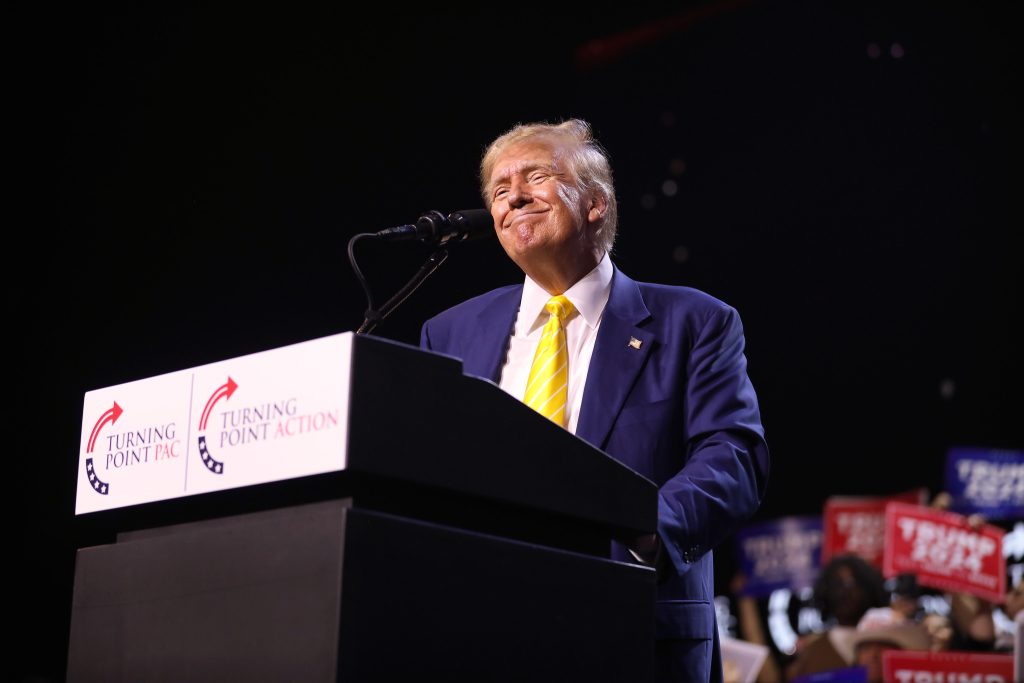
Be it his questionable tweets, political progress, or memorable quotes, Trump has made an impact across the globe. His journey to the presidency has always been controversial, from behavioural issues in his younger years to alleged insurrection.
Born on 14 June 1946 in Queens, New York, Donald John Trump was the fourth child of Fred Trump, an established real estate tycoon, and Mary Anne Macleod, who emigrated to the US from Scotland aged just 17.
Despite his financially privileged upbringing, Trump spent his early years working in the lower ranks of his father’s company, Elizabeth Trump & Son.
In his early years, Trump showed signs of behavioural issues, such as acting out and being disruptive. As a result, his parents enrolled him in the New York Military Academy to teach him some discipline.
Although Trump has since stated he enjoyed life at the academy, it seems he had no desire to take this career further. Indeed, during the 1960s, he used university and medical issues to avoid being drafted into the army.
Instead, he completed his bachelor’s degree in 1968, gaining a qualification in economics at Penn’s Wharton School of Finance and Commerce. But his studies didn’t get in the way of his business dreams. Trump started investing in real estate while studying.
Post-graduation, he joined his father’s company full-time, taking over the business in 1971 and renaming it The Trump Organization, which became involved in various commercial properties, including casinos, resorts, and even golf courses.
This expansion meant he soon made a name for himself, launching The Apprentice in 2004.
From entrepreneur to president
Trump began to focus on a political career in 2000, when he ran for president on a third-party ticket, but dropped out before he could be a part of the race. He considered rerunning in 2004 and 2012, then in 2016, won the Republican nomination.
Despite losing the popular vote, he won the majority of the Electoral College vote with his slogan Make America Great Again, becoming the 45th President of the United States, beating former Secretary of State Hillary Clinton.
During his presidency, he became well known for using Twitter to communicate with members of the public.
Trump’s presidency was not without complications, including controversy over his use of Twitter. There was also an impeachment in 2019 after evidence surfaced of him allegedly withholding aid to Ukraine in a bid to get them to provide damaging information on one of Trump’s political rivals.
The House of Representatives subsequently voted to impeach Trump for abuse of power and obstruction of Congress. Yet the Senate voted to allow the president to remain.
The Second Run
Fast forward to spring 2020, when most of the world went into lockdown following COVID-19. Trump began his campaign for a second term, running against Joe Biden.
Despite Covid, Trump held rallies attended by thousands of people, while Biden, in contrast, was socially distant, often complying with the regulations.
There was speculation that the pandemic taking a central point in campaigns may have swayed voters, resulting in Biden winning with a 51.4% majority and 306 electoral college votes. Trump was convinced that he had won, but there was no evidence to back up this claim.
Yet loyal supporters believed his rhetoric. On 6 January 2021, while Congress counted the electoral vote, there was a violent protest with protestors storming the Capitol Building in Washington intended to prevent Biden’s victory from being declared, resulting in the deaths of five people.
The incoming administration claimed protests were a result of Trump’s social media posts inciting violence, and he was successfully impeached.
Now, four years later, at 78, Trump is on the cusp of becoming the 47th President of the United States. Will this be his next and final chapter?
